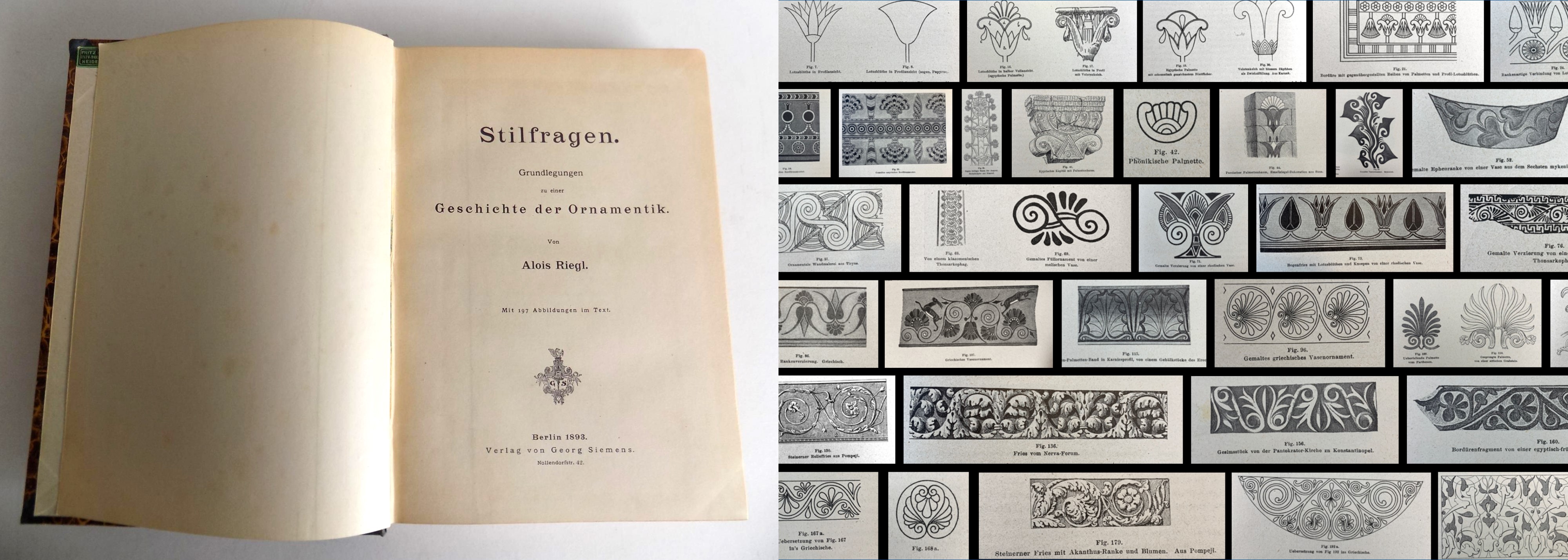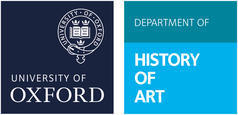History of Art Research Seminar Series 2024
Unraveling Stilfragen: Alois Riegl and the Crafting of Early Formalist Art History
Dr Jesse Lockard & Prof Meekyung MacMurdie
Unraveling Stilfragen: Alois Riegl and the Crafting of Early Formalist Art History
Dr Jesse Lockard (Corpus Christi College) & Prof Meekyung MacMurdie (University of Utah)
5pm Wed 27 Oct

Representing art history’s now-standard appreciation of Alois Riegl (1858-1905), Svetlana Alpers described Riegl’s work as a contestation to the “normative center” of the field, admiring the Viennese scholar’s concern with art that was “at best considered marginal, at worst […] degenerate.” Riegl’s influential challenge to his still-emerging discipline began in earnest with the publication of Stilfragen (1893), the first of his works to receive widespread recognition. In this book, Riegl advanced two of his most celebrated (and conceptually interwoven) contributions. First, he developed the basis of an analytic model that connected the form of an artifact to the “spirit” of the era in which it was made. Second, he championed the study of anonymous applied arts, repudiating the discipline’s biographical, textual, and figural biases. Today, Stilfragen is no longer widely read and often referenced only in relation to Riegl’s later, more well-known works, especially Spätrömische Kunstindustrie (1901) and Der moderne Denkmalkultus (1903). Our talk offers a new interpretation of Stilfragen, arguing for its overlooked significance in shaping formalist aesthetic theory.
We argue that crucial aspects of the innovative analytic method Riegl deployed in Stilfragen emerged from ways of knowing located outside of academia—particularly from his technical expertise with textiles and a hitherto unnoted engagement with the complex ecology of images that circulated through nineteenth-century European pattern books, which compiled examples of ornament for the practical use of artists and designers. Highlighting the central role of photography and other book technologies in the formation of Riegl’s methodologies, this talk offers an unconventional account of basic formalist hermeneutics like line and color. Practicing a material approach to critical historiography, we reintegrate the history of artisanal knowledge into the development of art history’s foundational tools and canonic narratives.
_________
This historiographic argument was developed as part of a large, ongoing collaborative research project on the materiality and epistemology of early formalism by Jesse Lockard and Meekyung MacMurdie.
Jesse Lockard is a historian of modern and contemporary art and architecture, with special interests in political philosophy, design theory, and historiography. She is The James Legge Memorial Fellow in Comparative Aesthetics and Art History at Corpus Christi College, University of Oxford. Prior to that, she was a postdoctoral fellow at the Kunsthistorisches Institut in Florenz – Max-Planck-Institut. She received a PhD from the University of Chicago in 2021, where she was awarded the Feitler Prize for the Best Dissertation in Art History. Lockard is currently writing a monograph on the architect-artist Yona Friedman and the emergence of participatory aesthetics out of the Second World War, research for which she won a Carter Manny Award. She is co-editing another book (with Adrian Anagnost), titled Machines for Settling: Provisional Architectures of Colonialism and Conflict, on the temporary, interstitial structures that effect processes of settlement and displacement, which architectural history has largely overlooked. Concurrently, Lockard works on historiography, where her current project is on nineteenth-century disciplinarity and the reception of antiquity, focused on discourses around pattern and the problem of expertise in the wake of the global turn.
Meekyung MacMurdie is Assistant Professor of Art History at the University of Utah. She is foremost a historian of premodern Islamic visual and material culture, with a special interest in the intersection of aesthetics, artistic process, and information technology. MacMurdie is currently at work on a book titled Geometric Medicine: art, knowledge, and efficacy in the medieval Islamic world, that explores how artisans, scribes, and calligraphers articulated their expertise as integral to the health of the human body. She is also contributing to a volume on the Golden Horde (edited by Eiren Shea and Ittai Weinryb). MacMurdie is a Senior Fellow in the Andrew W. Mellon Society of Fellows in Critical Bibliography. Her research in critical bibliography extends to the nineteenth and twentieth centuries, and she is currently the co-lead of “Making Style History,” a collaborative investigation into the material history of formalism. MacMurdie received a PhD in Art History from the University of Chicago in 2020, and was a postdoctoral fellow in the European Research Council-funded “Global Horizons in Pre-Modern Art” research group at the University of Bern.
______
Open to all. No booking required. All talks are approximately one hour and followed by a drinks reception.



